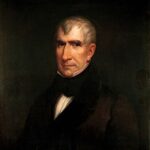The Presidential Independence Decision
William Henry Harrison faced immediate pressure from Whig Party leaders upon his 1841 inauguration. Henry Clay and other party bosses expected to control cabinet appointments. Harrison firmly rejected their demands, asserting his constitutional authority. 🏛️ This decision marked a pivotal moment in executive branch development.
Constitutional Authority Asserted
The Constitution grants presidents sole authority over executive appointments with Senate confirmation. Harrison understood this principle clearly. Party leaders had grown accustomed to influencing weak executives. Harrison’s stance reinforced constitutional separation of powers. 📊 His decision demonstrated that presidents must remain independent of party machinery.
Historical Context and Significance
Previous presidents had often yielded to party pressure on appointments. Harrison broke this pattern decisively. His background as a military leader likely influenced his independent stance. ⚠️ The decision came at a critical time when party politics threatened executive autonomy. This precedent would guide future presidents facing similar pressures.
Impact:
Immediate Political Consequences
Harrison’s rejection of Whig Party control created immediate tension with party leadership. Henry Clay and other Whig bosses felt betrayed by Harrison’s independence. 🔥 The conflict strained relationships within the party structure. However, Harrison’s stance earned respect from constitutional scholars. His decision prevented the executive branch from becoming subordinate to party interests.
Long-term Constitutional Impact
The precedent Harrison established strengthened presidential independence for future administrations. Subsequent presidents could reference Harrison’s stand when facing party pressure. 🌍 This decision reinforced the constitutional principle of executive autonomy. The precedent proved especially valuable during times of intense partisan conflict. Presidential independence became more accepted as a constitutional norm.
Legacy for Executive Power
Harrison’s brief presidency left a lasting mark on executive authority. His cabinet appointment stance influenced presidential behavior for generations. The decision demonstrated that even party-backed candidates must maintain independence. 📈 This precedent helped preserve the balance of constitutional powers. Modern presidents continue to benefit from Harrison’s courageous constitutional stand.
